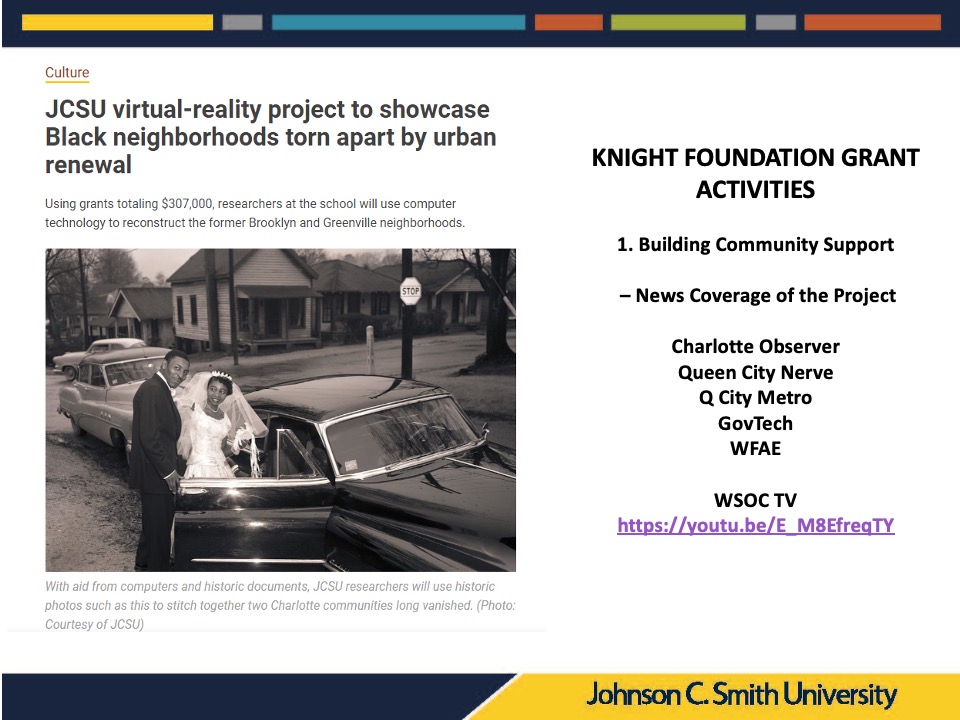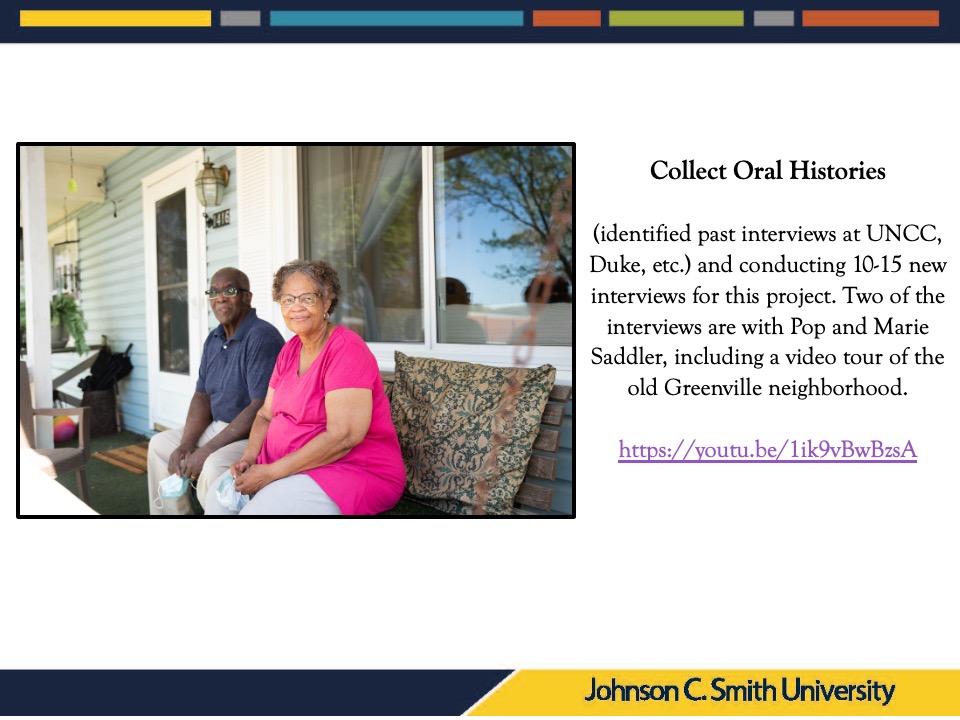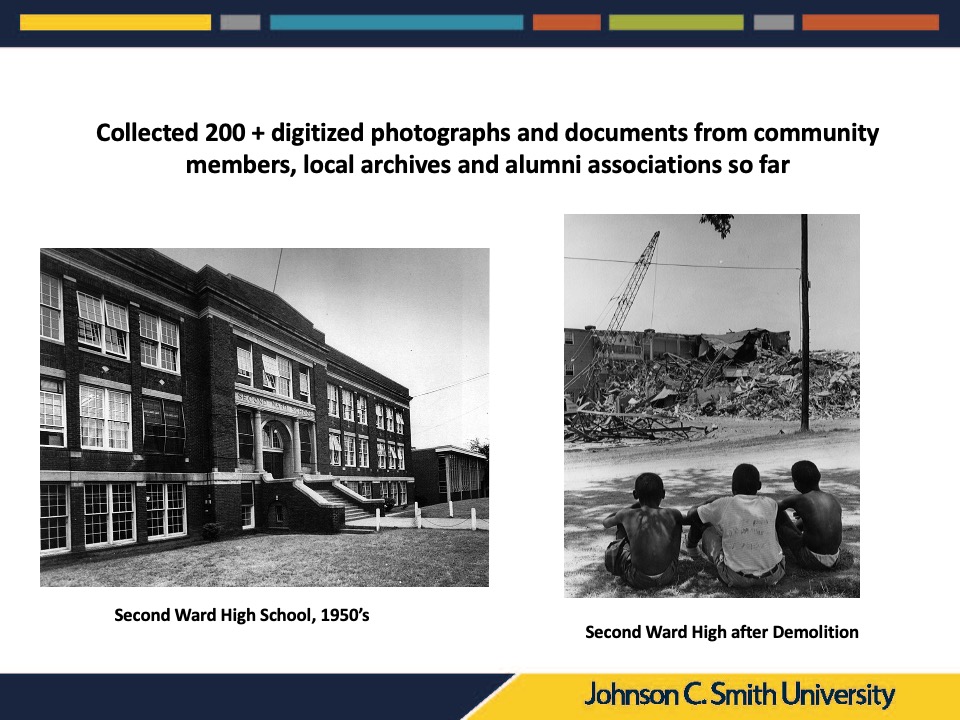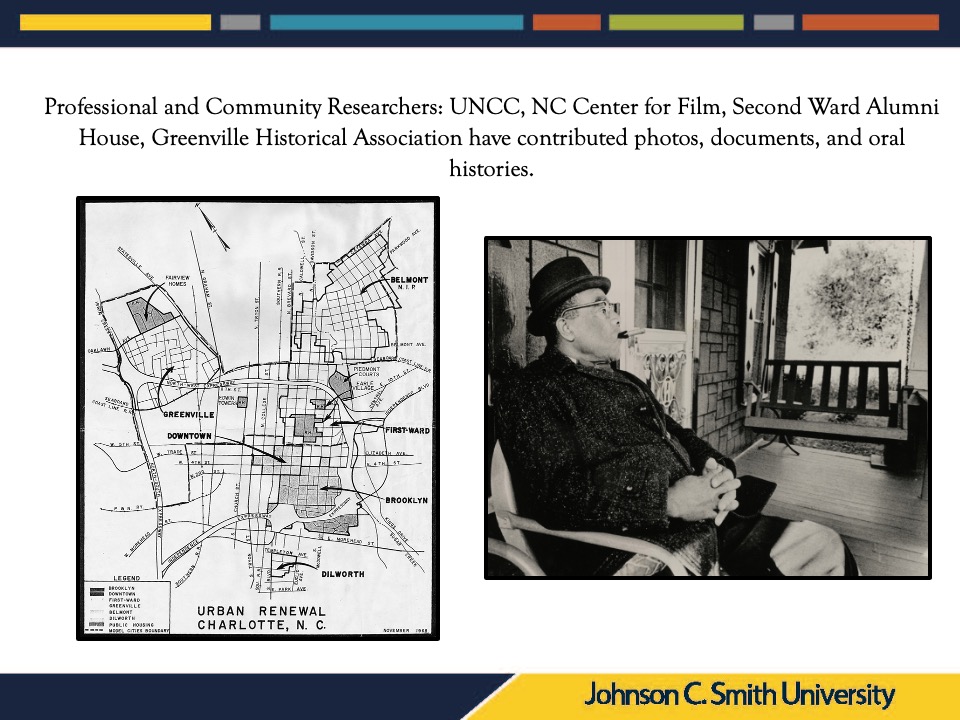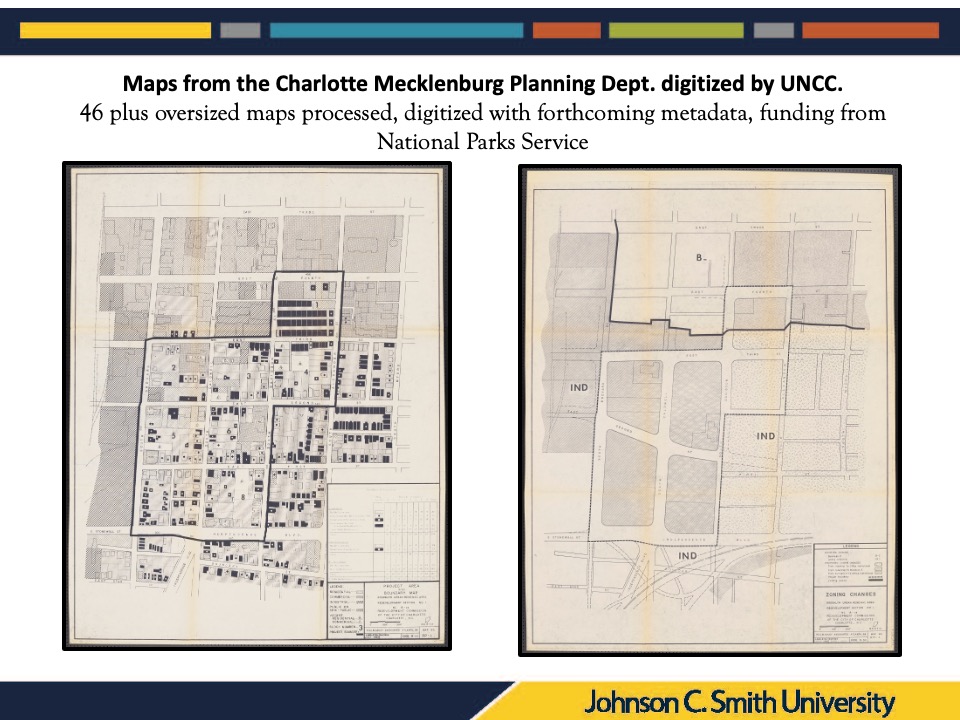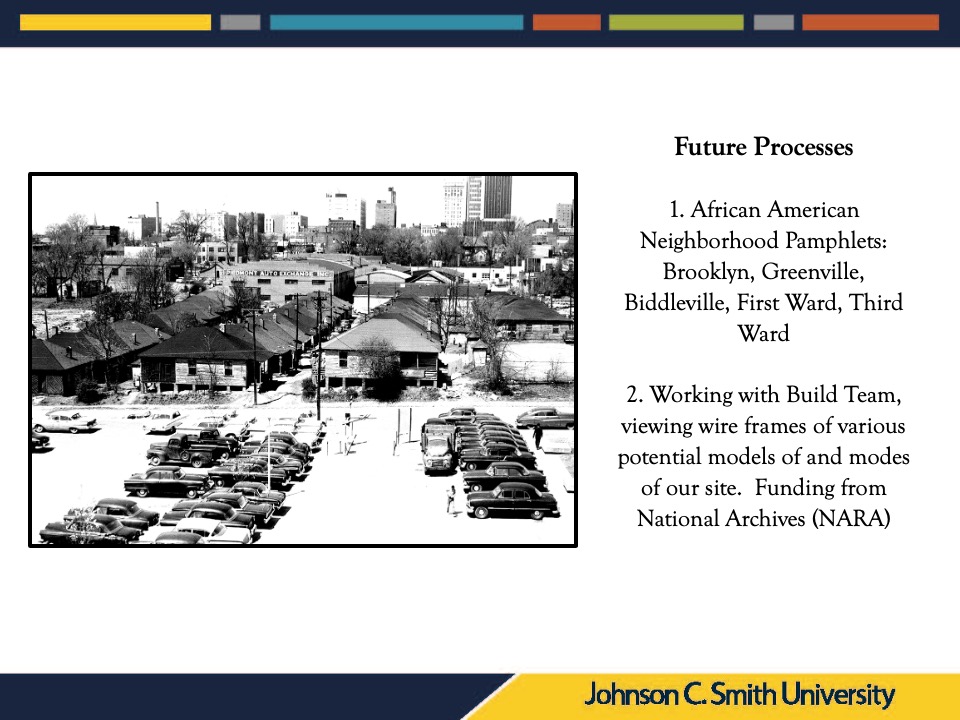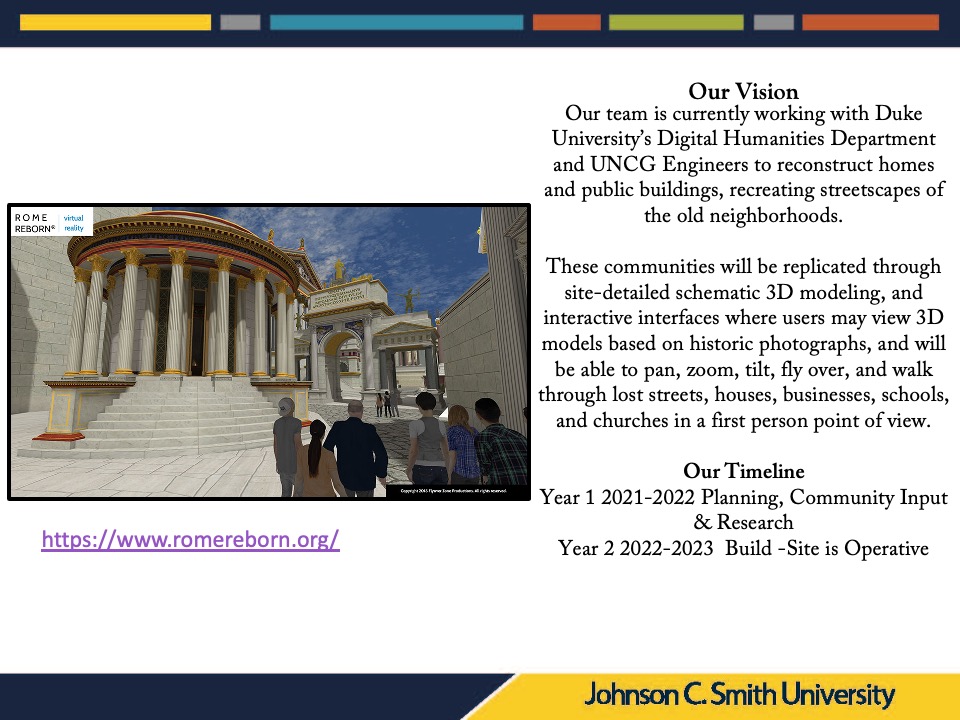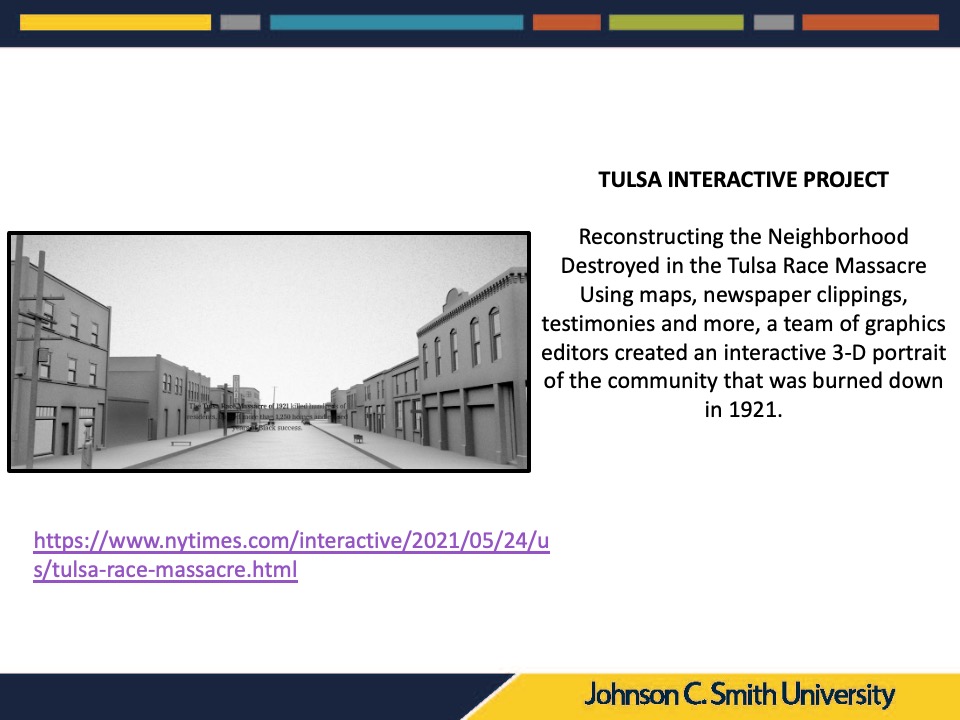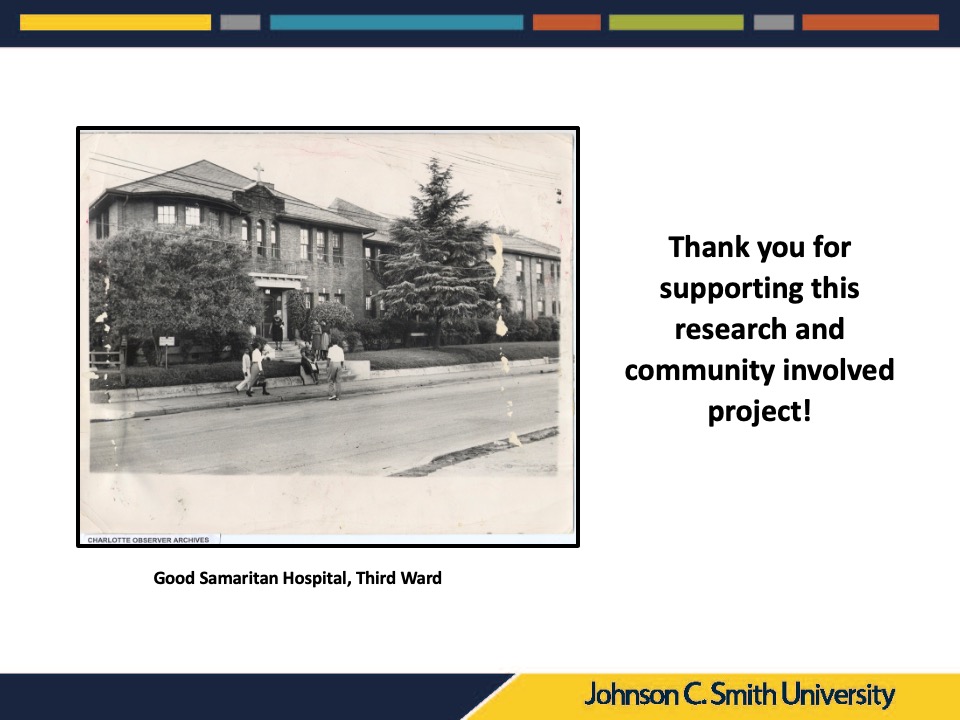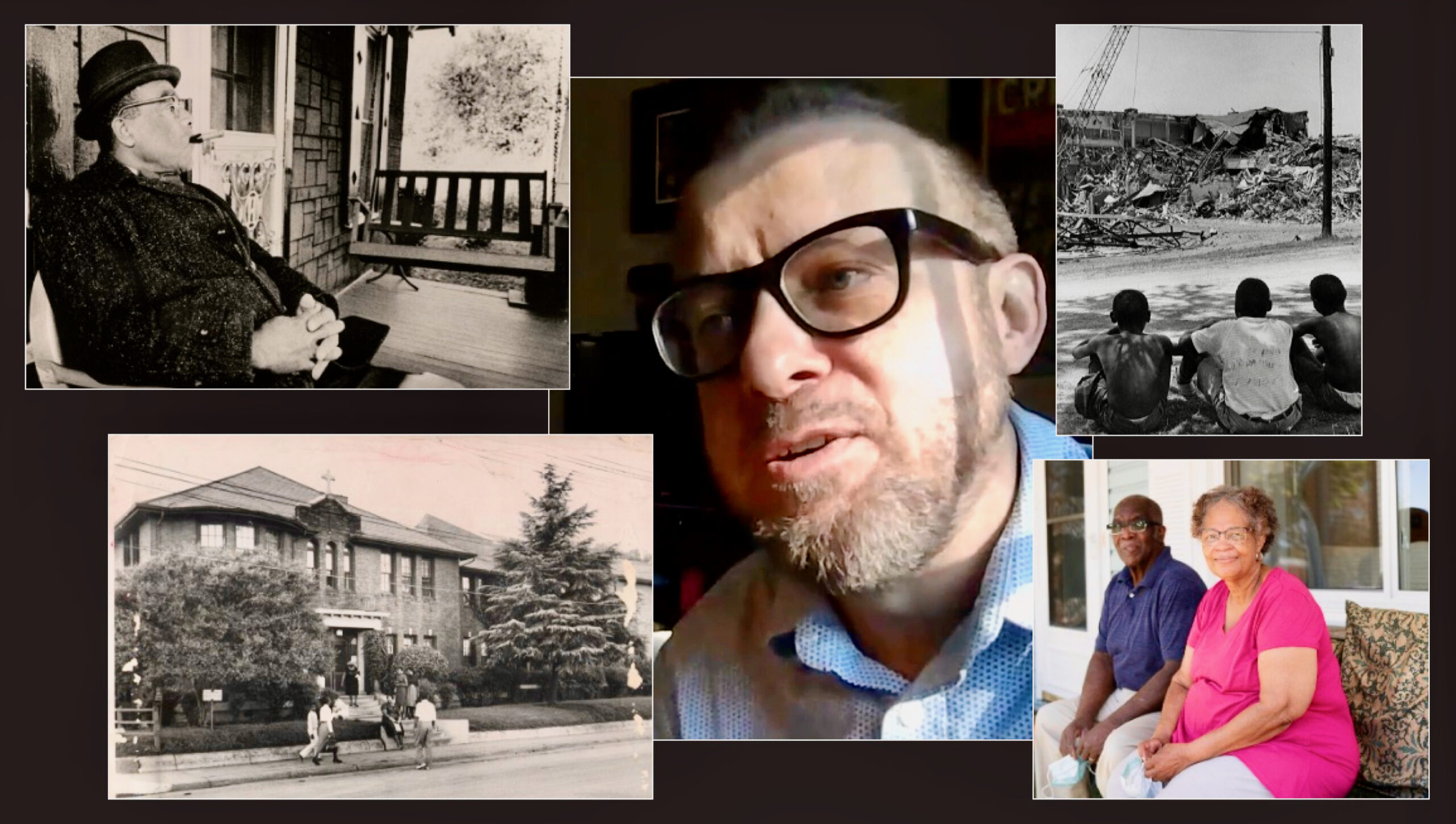
Sept. 14, 2021
Many of the stories have already been told about life in Black Charlotte neighborhoods maimed or destroyed by 1960s urban renewal or the current wave of gentrification.
But Johnson C. Smith University Archivist Brandon Lunsford is on the hunt for the stories and photos that have not yet surfaced. And he’s equally focused on linking together all the stories and records already housed in separate silos, so people can readily find the story they are looking for.
Amidst a session in which he was peppered with suggestions of what more needs to be done, Lunsford outlined the work under way, the grant money that is funding this labor- and technology-intensive work, and the time frame for completion of the project’s first phase – two years.
Neither Rome nor Charlotte – neither the real ones nor the digital ones – seem to get built in a day.
Below is the video of Lunsford’s presentation and the Q&A that followed. Below the video are additional items from the session:
-
- Lunsford’s presentation slides are downloadable here as a PDF. The individual slides appear below.
- Forum participants’ suggestions for additional research and some comments are reproduced below from the chat box.
- Lunsford asked that people with photos, or suggestions of people (including themselves) who would be willing to be interviewed contact him at Brandon Lunsford, JCSU Archivist and Digital Manager, James B. Duke Memorial Library, Johnson C. Smith University, 100 Beatties Ford Rd. Charlotte NC 28216. His phone number is 704-371-6741, e-mail is [email protected]
Comments and suggestions from the chat
Jackie Edwards Walton: Are you collaborating with the Allegra Westbrooks Regional Library?
Juanita Miller: Do you have anything on Biddleville School that was off Beatties Ford Road, down Mattoon Street? It was torn down and the students were sent to Bruns Avenue around 1968.
Laura McClettie: Do you have any information about the West Charlotte Merchants Association and the West Charlotte Business Incubator on JCSU Campus?
Mattie Marshall: “Information is Power” “It is the responsibility of every adult to know their history and culture, to preserve it, and to pass it on to the next generation. It is the youth’s responsibility to use that knowledge, assume their rightful place in history, and pass the information on to the next generations. It is an obligation, not a luxury.” (Antony Browder)
Mary Johnson: Do you have information on Second Ward High School?
Juanita Miller: Oftentimes the center of the African Americans is the church. There was a huge brick church on McCall Street, that was torn down due to urban renewal, and now all I see is a grassy lawn with nothing there. The Church of the Lord Jesus Christ of the Apostolic Faith.
Jackie Edwards Walton: Do you have information about the Charlotte Business League and AABWE/ CABWE?
Gary Marion: Many successful black businesses & homes were bombed & destroyed! Many of the people who are guilty of this crime, have family members who are politicians, lawyers, judges & next-door neighbors!
Jackie Edwards Walton: Do you have information on Plato Price school? Habitat will be building a small neighborhood near the site next year.
Juanita Miller: Could you also add Smallwood to that group.
Jackie Edwards Walton: Are you gathering information on outlying areas of the county such as Dixie, Gunn, Sterling, Crestdale, North Meck, etc.?
Juanita Miller: Good Samaritan Hospital, where only a sign is up by the Panther Stadium.
Laura McClettie: Anything about Biddleville Presbyterian Church.
Stephen Valder: Jan Valder worked at Good Samaritan in the late 70s early 80s.
Fran Cook-Mahood: Is this something the university and city could hold a forum about to discuss?
Mattie Marshall: Isabel Wilkerson’s book: “Caste: The Origins of our Discontent” (Random House, 2020).
